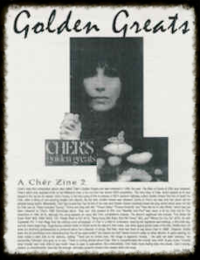Expert Bio: Todd Daniel Grossman is a composer, lyricist, and piano/voice teacher working in Phoenix, Arizona. He began playing piano by ear at four years of age, then received classical training until graduating with a degree in English Literature from Pomona College. Today he performs a wide repertoire of popular, classical, standard, and original music spanning decades of music appreciation.
Cher Scholar: How do you quantify music objectively? Are there a few pointers for fans of popular music? How do you approach pop music?
Todd Grossman: The phrase “quantify music objectively” is an interesting one in itself. I actually get into this conversation quite a bit with fans of popular music. They express dismay or regret about not understanding music in technical terms or theoretically. But I don’t think it is a pre-requisite for appreciating or even understanding popular music. In fact, I think a music theorist from Juilliard probably has a harder time enjoying popular music. Most likely they are hung up on a too-simple chord structure, or an unchallenging melody, and miss the point of enjoying what makes that song listenable to the general population.
I always tell my students who are learning to play music that music is already a part of who they are. They already have the ability to play, compose, and enjoy music. In fact, a standard element of my first lesson with a new student is an exercise in which I play standard chords in the key of C, (which only has white keys in it), and the student makes up a melody using white keys. It is always unfathomable to the student and parent that really beautiful pieces come out of this exercise, but it is because no skill is really needed to build a good song. The music is already there, genetically and intrinsically in each one of us. What is not there is the ability to read that music, or write that music down in a format that can be communicated to another musician. I compare it to knowing how to speak before you know how to read or write. Language comes naturally. Communication is a learning process.
To fans of popular music who struggle with wanting to understand it better, I suggest letting go of those notions. If you like a song, or if a song makes you feel a specific emotion, or reminds you of a time and place, then the song has done its job. In fact, I think there’s a lot to be gained from songs that annoy or irritate you. It’s the songs that don’t make you feel anything that typically don’t offer much in the way of artistry.
Personally, I push myself to music that is uncomfortable for me. My comfort zone is very accessible pop music. (think Air Supply and Bee Gees). as well as modern musicals. So I try to listen to alternative music as a background for daily tasks and what I find is that instead of resisting it, I actually grow into these songs, particularly upon repeated listenings. In fact, I make Robrt [Pela] CDs of my favorite alternative and current pop songs to stretch his palate. But I don’t fight my love for schmaltzy, 70’s and 80’s pop. It is a key component of the musician I am and the compositions I write.
CS: What Cher era is your personal or sentimental favorite and why?
 TG: Before I go too far into this, I have to say that I am not a Cher devotee. I like her music and I obviously listen to quite a bit of it (living with Robrt), but I’m not a fan in the traditional sense. I knew her pop hits throughout the 70s, 80s and 90s, but it was really the more recent albums that caught my attention (Believe and Living Proof are turning points). A lesser known recording of hers, (I think it’s lesser known – I can’t imagine the general population is familiar with it), that really clinched it for me is her duet with Eros Ramazzotti (“Più Che Puoi“). It probably ranks on my top twenty songs of all time and has made me a fan of Eros Ramazzotti. I think the combination of their voices is sublime – he has a high, almost nasal quality to his voice, paired with her low, rich tenor. It’s reminds us of what her early work might have sounded like if Sonny had a great voice. The recording quality is beautiful as is the mix of languages. And the melody is so melancholy yet uplifting to my ears. The years, technologically, have been kind to Cher (more on this later), since recording her voice is probably not the easiest thing to do well.
TG: Before I go too far into this, I have to say that I am not a Cher devotee. I like her music and I obviously listen to quite a bit of it (living with Robrt), but I’m not a fan in the traditional sense. I knew her pop hits throughout the 70s, 80s and 90s, but it was really the more recent albums that caught my attention (Believe and Living Proof are turning points). A lesser known recording of hers, (I think it’s lesser known – I can’t imagine the general population is familiar with it), that really clinched it for me is her duet with Eros Ramazzotti (“Più Che Puoi“). It probably ranks on my top twenty songs of all time and has made me a fan of Eros Ramazzotti. I think the combination of their voices is sublime – he has a high, almost nasal quality to his voice, paired with her low, rich tenor. It’s reminds us of what her early work might have sounded like if Sonny had a great voice. The recording quality is beautiful as is the mix of languages. And the melody is so melancholy yet uplifting to my ears. The years, technologically, have been kind to Cher (more on this later), since recording her voice is probably not the easiest thing to do well.
I tend to gravitate towards Cher’s duets. I loved her recording with Peter Cetera from 1989. Another case where the male voice is the higher of the two. And another case where the duet partner understands that competing with Cher’s voice is pointless. She doesn’t really know how to be a supportive player in a harmony, and both of these gentlemen take the cue and work to cushion and embellish her voice.
CS: Gravitating toward Cher duets, is there anybody you’d like to hear Cher duet with?
TG: If I could turn back time (haha – that’s a Cher joke, but I actually am using it to begin my answer), I would have had Cher do some duets with some of her contemporaries from each era. I would have loved to hear a duet with Michael McDonald. Johnny Mathis would be interesting since he has that nasal Sonny quality that is shared by Eros Ramazzotti and Peter Cetera. I think all of us would love to hear the duet that she did record with Lady Gaga. And currently, I think one of her contemporaries who could hold her own and do her justice is Pink.
CS: What era or album do you think is a hot mess?
 TG: Here’s where my lack of knowledge of Cher’s complete career fails me. I can only talk in general terms. I don’t love early Cher. I’m sure this is the era that really created her and planted the seeds of her iconic voice (again, more on this in response to the later questions). Early on, I find her interpretations a little severe, and I don’t love her pitch or her ability to sustain notes. There are exceptions in this early period. I like “Bang Bang (My Baby Shot Me Down).” It’s a song that I think was particularly suited to her voice at the time and played up her strong qualities while disguising some of her weaknesses.
TG: Here’s where my lack of knowledge of Cher’s complete career fails me. I can only talk in general terms. I don’t love early Cher. I’m sure this is the era that really created her and planted the seeds of her iconic voice (again, more on this in response to the later questions). Early on, I find her interpretations a little severe, and I don’t love her pitch or her ability to sustain notes. There are exceptions in this early period. I like “Bang Bang (My Baby Shot Me Down).” It’s a song that I think was particularly suited to her voice at the time and played up her strong qualities while disguising some of her weaknesses.
CS: Is there a Cher album or era you think has been overlooked critically speaking? Or something that has been over-praised?
TG: As I mentioned before, I think the duet with Eros Ramazzotti is overlooked. I think the Sonny era recordings are over-praised, but I understand their place in the history of pop music. The lines between becoming a celebrity and a singer are probably a bit blurred at that time which potentially helped cover any shortcomings the material and the singer and the technological state of the industry might have had. But when I listen to early Cher, (and many times I’m listening for the first time to these recordings), I just feel like I’m listening to a demo recording of a pretty good singer, engineered by some stoned teenager in a basement in Santa Monica.
CS: Ok, that made me laugh out loud. Is there a Cher vibrato timeline? Or any other vocal tics you’ve noticed that have come and gone over the last six decades?
TG: Cher has a very specific vibrato, one which has not changed so much as improved, particularly in how much control she has over it. Personally, I prefer more of a classic vibrato, or a more Broadway stage vibrato, (slower, more controlled). Cher’s voice breaks into vibrato quickly and it is a speedy quiver, which seems common among voices of that strength and projection. Barbra Streisand shares this same type of vibrato. As she ages, she seems better at sustaining and maintaining an even quality to that sound. Still, she never really seems to want to stay on big notes for very long or sustain a tone. She does it, but it is sporadic. And the vibrato is largely absent unless she is going for those bigger moments.
CC: What are the pros and cons of Cher’s voice, technically speaking?
TG: One thing that I never underestimate in a pop singer’s voice is its recognizability factor, and I think Cher is practically unsurpassed here. You know Cher when you hear her. And I think this is a pro and a con. If you are a fan, you love Cher, but if a song is not well-suited to her you might dismiss it. There’s no real chance to give that song a fair shake because you’ve, in some way, already decided what is good Cher and what is not. It’s something that many iconic singers have to contend with. (Barbra sounds like Barbra, Bette Midler sounds like Bette Midler). Some singers are better at manipulating their voices into other sounds. (Celine Dion, while typically recognizable, has some songs that are almost unrecognizable as belonging to her, but they are magnificent).
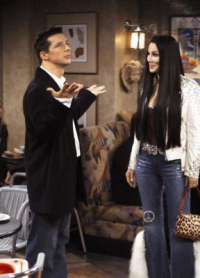 Cher has that very recognizable, and oft satirized, “OW” sound to her voice, (the famous Will and Grace scene with Jack is a perfect example of it). Watching her performances, I sort of theorize that it came about early as a result of her teeth. She didn’t like to reveal her then-crooked smile, and it looks as though she compensates for it by rounding her mouth around vowels instead of opening her jaw as most singers would do. Think about Whitney Houston, (I know – I’m using all of the most predictably iconic singers – it’s starting to look like a Vegas drag show around here). When she sings, you could practically take dental x-rays. Her mouth is open and wide and vowel sounds are allowed to be shaped and formed. But she has an incredible mouth to watch, and I don’t think Cher wanted, at that point, for people to look that closely at her teeth. By the time she had her teeth capped, it was a bit late. The vocal tic was set. Still, her enunciation is quite good, particularly for a low voice that can have a more difficult time getting crisp sounds and consonants.
Cher has that very recognizable, and oft satirized, “OW” sound to her voice, (the famous Will and Grace scene with Jack is a perfect example of it). Watching her performances, I sort of theorize that it came about early as a result of her teeth. She didn’t like to reveal her then-crooked smile, and it looks as though she compensates for it by rounding her mouth around vowels instead of opening her jaw as most singers would do. Think about Whitney Houston, (I know – I’m using all of the most predictably iconic singers – it’s starting to look like a Vegas drag show around here). When she sings, you could practically take dental x-rays. Her mouth is open and wide and vowel sounds are allowed to be shaped and formed. But she has an incredible mouth to watch, and I don’t think Cher wanted, at that point, for people to look that closely at her teeth. By the time she had her teeth capped, it was a bit late. The vocal tic was set. Still, her enunciation is quite good, particularly for a low voice that can have a more difficult time getting crisp sounds and consonants.
In terms of pitch and range, her strength is in her deep, low register. I don’t think it was taken advantage of early in her career. It just wasn’t the aesthetic of the time. People wanted 60s hippy waifs singing as if they were wandering through a [Greateful] Dead show. But Cher doesn’t have the widest of ranges and her high notes can be hit and miss. So she developed a strategy, (consciously or subconsciously), of dropping out of notes early or sliding up to notes that are at the borders of her comfort zone. In other words, she gets to the note, but doesn’t sustain it there; instead, she falls out to a note in a more comfortable part of her range. Or she slides up to a note, almost as if to say “I’m pretty sure I can get to it, but I’m going to get there in steps.” It would be interesting to hear the writer’s demo for “If I Could Turn Back Time.” I’m not absolutely convinced it was written to drop off or swing up to notes as often as Cher does, (If I could turn back ti-UMMMM, If I could find a wa-AYYYYYYY). She pulls down from some high notes and swings up to others. It’s a crutch that has become part of the distinctive quality of her voice. I always tell my voice students that it’s fine to have those things that are so distinctively individualistic, as long as you can choose when you are doing them. I’m not absolutely convinced Cher can NOT do those tricks at this point. It would take some real effort on her part and the result might show the Achilles heel in her voice.
CS: Do you have an album producer you thought handled Cher particularly well? Or someone who brought out the most from her limits or talents?
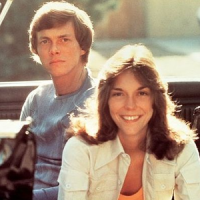 TG: Let me start with someone who I thought didn’t handle her well, from a vocal point of view, (though obviously brilliant at promotion and public relations): Sonny Bono. He demonstrated what I personally refer to as “The Richard Carpenter Complex.” I’m about to spew forth some totally unsubstantiated information, so brace yourself. When I hear Karen Carpenter, what I really hear is a beautiful voice that was being used as a tool for someone else’s vocal fantasy. Richard had a vision of what music should be, and he couldn’t sing as well as Karen and he (I think) knew it. So instead of honoring Karen as an artist in her own right, he used her as a conduit. He almost sang through her, forcing her into his own rhythmic, tonal, and expressive interpretations of songs rather than letting her have the freedom to explore them the way her voice could have. A sort of svengali approach to production. And I hear that same thing in Sonny’s production of Cher’s voice. Sonny couldn’t really sing well, and he probably knew it. But he wanted to and he had an artistic vision for the songs. So he used Cher as an instrument to get the effect he wanted. Unfortunately, in my opinion, you can almost hear his off-key, nasal approach to singing in her voice. Some recordings might as well be Sonny, (“The Man Who Got Away“). I compare this type of imitation to Joan Baez (“Simple Twist of Fate“) doing a dead-on Dylan impersonation. Sonny missed, or neglected the beautiful qualities of Cher’s voice. Through the years, she’s definitely strengthened as a vocalist and as an individual interpreter of song, but I think many of Sonny’s shortcomings took root in those early days. She finds the beauty in her voice, but it almost always sounds like it is fighting those early habits.
TG: Let me start with someone who I thought didn’t handle her well, from a vocal point of view, (though obviously brilliant at promotion and public relations): Sonny Bono. He demonstrated what I personally refer to as “The Richard Carpenter Complex.” I’m about to spew forth some totally unsubstantiated information, so brace yourself. When I hear Karen Carpenter, what I really hear is a beautiful voice that was being used as a tool for someone else’s vocal fantasy. Richard had a vision of what music should be, and he couldn’t sing as well as Karen and he (I think) knew it. So instead of honoring Karen as an artist in her own right, he used her as a conduit. He almost sang through her, forcing her into his own rhythmic, tonal, and expressive interpretations of songs rather than letting her have the freedom to explore them the way her voice could have. A sort of svengali approach to production. And I hear that same thing in Sonny’s production of Cher’s voice. Sonny couldn’t really sing well, and he probably knew it. But he wanted to and he had an artistic vision for the songs. So he used Cher as an instrument to get the effect he wanted. Unfortunately, in my opinion, you can almost hear his off-key, nasal approach to singing in her voice. Some recordings might as well be Sonny, (“The Man Who Got Away“). I compare this type of imitation to Joan Baez (“Simple Twist of Fate“) doing a dead-on Dylan impersonation. Sonny missed, or neglected the beautiful qualities of Cher’s voice. Through the years, she’s definitely strengthened as a vocalist and as an individual interpreter of song, but I think many of Sonny’s shortcomings took root in those early days. She finds the beauty in her voice, but it almost always sounds like it is fighting those early habits.
On the positive side, I give Mark Taylor credit for “rediscovering” Cher’s voice. I think it takes a bit of vision to find a way to make such an iconic voice relevant to a new audience. He used her voice as the ingredients to mix a new sound that was both groundbreaking and familiar in “Believe” and “Strong Enough.” If you know Cher’s work, you know it’s her. You can extract the Cher-isms while enjoying a new angle to her work. If you are just being introduced to Cher, the production provides enough modernity to allow the song to become the primary focus. You don’t get the vibe of a fifty-year-old artist trying to be current. You just get a really solid dance mix performance.
CS: How do you feel about the torch numbers (“The Way of Love,” songs from Foxy Lady and the whole project Bittersweet White Light)? Bittersweet White Light seems to be a very controversial album for fans. People either love it or hate it. What’s going on there in your opinion?
TG: First off, I have a lot of affection for “The Way of Love.” I think it’s a song that really works well for Cher. You’d be hard-pressed to find a singer who could deliver a more powerful version of that song.
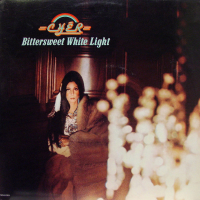 Bittersweet White Light however seems to be a bit of a stretch to me. I think she could do a better job of standards now, utilizing modern producers and a creative team of arrangers who understand her capacity and strengths. Bittersweet just seems to be saying, “Hey, look! She’s more than just a folk rock singer.” But it’s unconvincing. The orchestra seems to take over and she feels like she’s fighting it rather than enhancing it. It almost is counter-intuitive. Her voice can be huge. It should be big enough to handle an orchestral accompaniment. But it falls short. You listen to singers like Doris Day and Ella Fitzgerald who almost solely sang in front of a full orchestra and they never seem to push or belt or strain. And yet, there they are – front and center and commanding the musical stage. Cher makes the mistake of thinking it is about volume when it is about control. And she doesn’t have that at the time of Bittersweet.
Bittersweet White Light however seems to be a bit of a stretch to me. I think she could do a better job of standards now, utilizing modern producers and a creative team of arrangers who understand her capacity and strengths. Bittersweet just seems to be saying, “Hey, look! She’s more than just a folk rock singer.” But it’s unconvincing. The orchestra seems to take over and she feels like she’s fighting it rather than enhancing it. It almost is counter-intuitive. Her voice can be huge. It should be big enough to handle an orchestral accompaniment. But it falls short. You listen to singers like Doris Day and Ella Fitzgerald who almost solely sang in front of a full orchestra and they never seem to push or belt or strain. And yet, there they are – front and center and commanding the musical stage. Cher makes the mistake of thinking it is about volume when it is about control. And she doesn’t have that at the time of Bittersweet.
CS: What’s your opinion of her version of Gershwin’s “Aint Necessarily So” in the 1990s? Is she improving with control and phrasing decisions here or not improving?
TG: I think she does show improvement in this piece, as far as a torch number goes. She certainly seems to enjoy performing it. And her voice seems, for once, up to the challenge of performing a standard against an orchestral background, (although I have a bit of a problem understanding some of the lyrics). But again, I just don’t think it is an ideal form for her. First of all, her enthusiasm for the song isn’t enough to compensate for what I think is an odd disconnect from the material. I never feel like she’s really communicating the lyrics in that piece in a way that is not stereotypical and a bit cold, (although, I have to say, that is a problem I have with a lot of jazz vocalists as well – the technique of the singing overtakes the telling of the story, which is never my preference – I’ll always opt for a less-than-perfect vocal with heart and emotion). When I think about why I feel that way, and really try to break it down, I come back to the same thing. Cher does not have a voice that gets to its final resting place easily or quickly. She rounds out her vowel sounds in a large way. The quick, precise runs of artists like Christina Aguilera or Ariana Grande would be perfect for a song like “It Ain’t Necessarily So” (for a modern audience). Cher doesn’t really have that ability. So she works the song like a torch singer of a time past, but she can’t really find that groove either. Her voice has a little too much rock influence to make it believable.
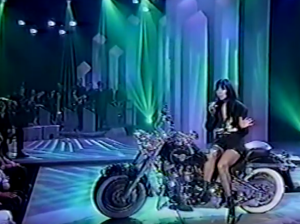 Also, one of the clips I watched had her sitting on a motorcycle while singing it, which didn’t really help. I just think she wants it so badly. She wants to be a singer who can handle everything. Someone who people listen to and say, “Wow, she can knock out a rock song AND she can sing a torch number.” Linda Ronstadt did it well. Natalie Cole did it well. Even Crystal Gayle does a great job on standards. And Rod Stewart. But somehow, Cher can’t quite make it believable. Or she hasn’t settled into the correct material. I can imagine her doing “Someone to Watch Over Me” well. Or “Time After Time,” (the old standard, not the Cyndi Lauper song). Or maybe even something like “Lush Life” by Billy Strayhorn. But she doesn’t gravitate towards those types of pieces. These songs seem to fit her story a bit better as well. It’s hard to imagine Cher feeling the way the singer feels in a song like “Am I Blue?” She’s just not that wallflower.
Also, one of the clips I watched had her sitting on a motorcycle while singing it, which didn’t really help. I just think she wants it so badly. She wants to be a singer who can handle everything. Someone who people listen to and say, “Wow, she can knock out a rock song AND she can sing a torch number.” Linda Ronstadt did it well. Natalie Cole did it well. Even Crystal Gayle does a great job on standards. And Rod Stewart. But somehow, Cher can’t quite make it believable. Or she hasn’t settled into the correct material. I can imagine her doing “Someone to Watch Over Me” well. Or “Time After Time,” (the old standard, not the Cyndi Lauper song). Or maybe even something like “Lush Life” by Billy Strayhorn. But she doesn’t gravitate towards those types of pieces. These songs seem to fit her story a bit better as well. It’s hard to imagine Cher feeling the way the singer feels in a song like “Am I Blue?” She’s just not that wallflower.
And why the motorcycle? Almost any other song I could make up a backstory for the bike. But this song is so biblical. I just can’t understand that choice. And her hair looks like she just took the ice bucket challenge.
CS: The song “Believe” has made its way into critical journals of pop culture study; it’s spawned many imitators, mashups, and covers. But it has also introduced concerns about “authenticity” and technology. How do you feel about it?
TG: I don’t have a problem with “Believe.” People talk about studio manipulation and worry that the singer is not being represented; but in truth, all studio albums involve manipulation. You wouldn’t want to hear most singers “dry” recordings. And singers, (even on stage), sing with effects added, even in their monitors. They are singing in accordance with the effects, taking advantage of the reverb and echo that is added. There are beautiful technical singers who could nail songs without any added technology, but they are few and far between. Think of radio interviews with singers where they are asked to sing a few bars of something and you think, “Wow! I’m pretty sure I could sing that better.” Most pop artists are just not made for a raw recording.
“Believe” is obviously a very highly produced song. But everyone had to be on board with that effect. The producer had to know what his raw ingredient was and how to use it. Cher had to understand how her voice was going to be transmitted throughout the song. You just don’t take a terrible track and make it great or interesting. The finesse is there, and I think the song is strong compositionally, lyrically, vocally, and technologically. And I don’t know that just anyone could have pulled that off. And like I said, you don’t have to know Cher to be pulled into that song or a song like “Strong Enough.” But there’s a certain anthem quality to some of Cher’s recent work that makes you keep rooting for her. A lifetime of watching her personal affairs play out in public makes songs like “Believe” more meaningful. It’s what saves otherwise schmaltzy pieces like the Burlesque song “You Haven’t Seen the Last of Me.”
CS: Why do you think Cher has lasted so long as a musical artist despite a limited education in music and little support in the industry? There could be reasons beyond music. But then why are there still albums and more albums (when there are not movies and more movies or TV shows and more TV shows)?
I don’t think education is necessary to a lasting musical career. You can attain the education you need along the way, and probably benefit from the lack since it allows a more complete immersion into a natural, organic performance. As for support from the industry, I’m not sure anyone could really have predicted her success and rise to fame. I don’t even think Cher could have predicted it. It doesn’t mean that you can’t support it, but I imagine that industry professionals probably thought over and over again that her career would spark and fade. But I don’t think she was ever going to just stop being Cher. And that’s probably the answer. She wasn’t just Cher from 9 to 5. She is Cher twenty-four hours a day. So what else is she going to do but persist and endure?
Cher is fascinating in that when she is a singer, she’s a singer. When she’s an actress, she’s an actress. When she’s a TV star, she’s a TV star. She’s never a singer who is trying to act. Or a TV star who is trying to sing. She’s wholly committed to the task at hand. She benefits, as she ages, from a medium that doesn’t put her unforgettable look in front of a camera, so I think music works well for her. New audiences can hear her without staring at her. Her look is not subtle. Even her earlier films had to work to un-Cher her to some extent, and now that task is probably not so easy. It’s a very specific role that she can squeeze into.
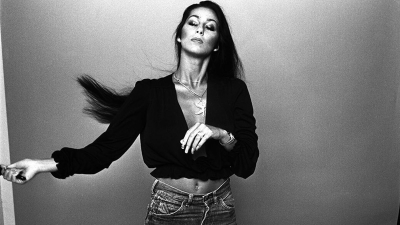
CS: What other music artists is Cher really like? Where do you classify her?
TG: This is a loaded question. In truth, she is not like anyone else. Vocally she is unlike any pop artist that had come before or since her debut. She branded a type of artist that is known as much for her voice and her material as she is for her look and her persona and her fashion. In fact, she did it so well, that every artist that even comes close to that kind of iconic status probably has her to thank for their success, and also to curse for the fact that Cher limits the extent to which they can be credited for their originality or innovation. You can appreciate Madonna, (who has a lot of Cher-like qualities and similarities), but you can also distill down her career and say that it has the essence of Cher at its base. Lady Gaga has dozens of people, or hundreds, working on her image and look and performance and still only manages to be a very, very excellent descendant of Cher. There’s an element of self-consciousness in those other artists that Cher did not possess. She was Cher. From as early as we can remember, we never thought she was putting on an act or doing something she didn’t believe in a hundred percent. There are better singers. Christina Aguilera could sing circles around Cher. But the sincerity is missing, replaced by virtuousity. Gaga has a beautiful voice, but it has to compete with so many other things that Gaga wants to be – a performer, an actress, a fashionista, a dancer, a ground-breaker. So you stop listening 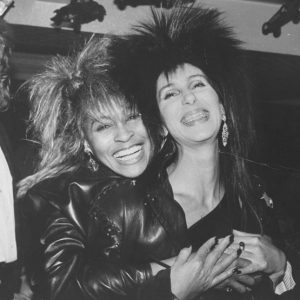 sometimes and you let your attention be scattered across all of those things. Cher opens her mouth and she’s Cher. The costume becomes something to talk about later. The look is cocktail conversation following the performance. But the performance is about Cher singing a song to you.
sometimes and you let your attention be scattered across all of those things. Cher opens her mouth and she’s Cher. The costume becomes something to talk about later. The look is cocktail conversation following the performance. But the performance is about Cher singing a song to you.
She’s obviously grouped with icons such as Barbra Streisand, Bette Midler and Tina Turner and with good reason: they are also instantly recognizable and have a sort of lasting quality. But they don’t surprise us anymore. They don’t challenge us to keep accepting them. They don’t embrace a new generation of music fans. Cher does.
